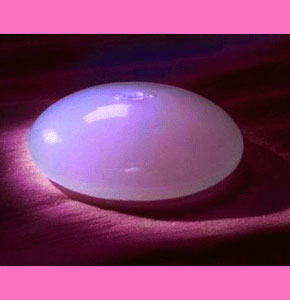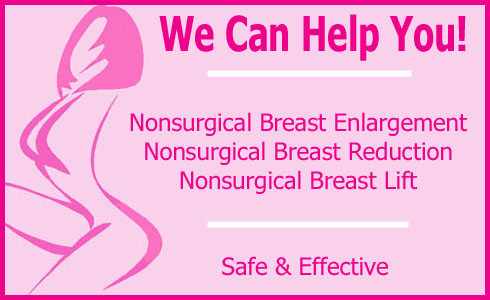
Capsular contracture is an unfortunate event which may occur after breast augmentation surgery. The scar capsule is the organic tissue which grows around any implant placed in the body. This capsule surrounds the breast implant, partially or completely isolating it from the rest of the body. In some instances, this capsule can shrink, causing an aesthetically unpleasant appearance and influencing the feel of the breasts. Sometimes this contracture event can be problematic and very painful for the patient.
This resource section discusses contracture of the implant capsule, as well as the many treatments that can resolve this unaesthetic and uncomfortable occurrence.
Capsular Contracture Causes
Doctors are not really sure what exactly causes contracture to occur in some women, but not others. The body views the implant as an invader and forms a capsule of fibrous tissue in an attempt to isolate this foreign object from living tissue.
Post-operative breast implant infection can also be a contributing factor to problematic contracture syndromes.
Implant age definitely factors into contracture, since the body continues to build this protective barrier over many years. Older implants are far more likely to become affected by contracture, due to the density of the capsule, as time progresses.
Additional factors which contribute or reduce contracture occurrence include the type of implant used, the texture of the implant and the surgical placement.
Breast Implant Contracture Discussions
Contracture correction might involve surgical or noninvasive methods of care. Ironically, contracture surgery is generally considered to be safer and more effective than noninvasive contracture treatment.
Capsulotomy and capsulectomy are the two most common types of invasive contracture therapy.
Closed capsulotomy is a risky nonsurgical treatment that is known to be very painful and damaging to the implant prosthesis.
Quadrant breast massage and breast compression might help to prevent contracture, which is why these practices are almost universally recommended by doctors.
Accolate and papaverine are pharmaceutical products that might help prevent or treat contracture conditions.
Ultrasound for contracture is a promising treatment modality that might allow a patient to avoid surgical correction.
What causes contracture? This is a common question that unfortunately does not have an answer that applies to every case.
Degrees of Capsular Contracture
Contracture is rated on the scale known as Baker Classification. It describes varying degrees of contracture and how each will affect the breast tissue:
Class I: The affected breast is soft and pliable. Appearance is normal.
Class II: The affected breast is less soft than normal and the implant can be obviously felt, but not seen.
Class III: The affected breast is considerably harder than normal and the implant can be seen and felt. Distortion of the implant is a common visual indicator.
Class IV: The affected breast is obviously hard, tender, painful and often restricted in movement. The implant is obviously distorted in shape or placement.
Capsular Contracture Experiences
Contracture can occur rather quickly in some patients. It accounts for a large percentage of first year complications and is a primary reason for subsequent breast implant removal.
Contracture is more common in women receiving breast implants as part of a breast reconstruction procedure, than in women undergoing simple breast enlargement.
Gradual contracture, occurring over the years, is considered largely normal and is one of the main reasons why many women choose to undergo a revision procedure. Contracture is the cause for up to 30% of all secondary breast surgeries and is the primary reason cited by up to 75% of all women who choose to remove their breast implants altogether.
Understanding the Risks of Implant Contracture
Talk to your surgeon regarding the risks and complications which can occur as part of a contracture issue. While most women do not experience premature contracture, it is always a possibility.
Choosing particular types of implants, placements and procedures can help to minimize the risks of suffering a symptomatic contracture problem.
If you already have implants and are concerned over signs of contracture, consult with your plastic surgeon to talk about steps which can correct the condition and restore softness and suppleness to your breasts.
Enhanced breasts need to be monitored for signs of contracture, so remember to follow your doctor’s post-surgical advice carefully. Luckily, even severe clinical cases of contracture can be fixed using surgical or non-surgical methods of care.




